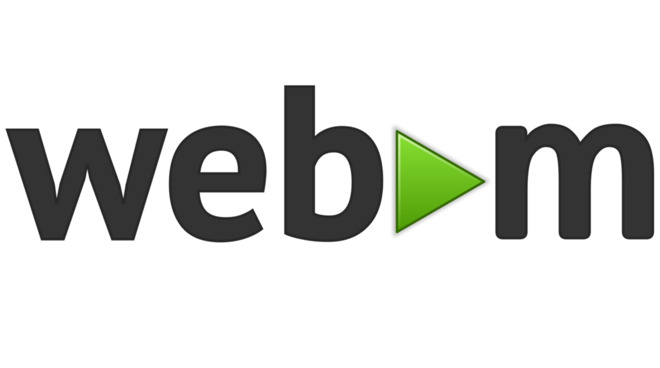WebM video support has been added in macOS Big Sur 11.3 beta 2
After over a decade of availability, Apple has finally added support for Google's WebM video codec in Safari on macOS Big Sur 11.3.

WebM is a video format from Google that provides good video quality with a small file size
Google's video format WebM has existed since 2010 but for reasons unknown, Apple is only just adding support to macOS Safari now. WebM files will only play on desktop Safari when running the macOS 11.3 beta 2, and does not work on mobile Safari as of yet.
The 8-Bit reports that WebM is a niche video codec that isn't widely used today. Most other browsers supported WebM already with Apple being among the last to add support.
All browsers on iOS do not support WebM since browsers like Chrome and Firefox must use Apple's Safari web engine. There is no current indication of Apple bringing support to iOS, in beta, or otherwise.
Steve Jobs originally dismissed the WebM format, calling it "a mess" that "wasn't ready for prime time." Over a decade later, Apple apparently believes it is.
Apple may be bringing WebM support as an alternative to Flash since it was officially deprecated in 2021. Apple has also been working with Google to bring support for 4K YouTube video playback which relies on VP9, and WebM support may be a side-effect of that.

WebM is a video format from Google that provides good video quality with a small file size
Google's video format WebM has existed since 2010 but for reasons unknown, Apple is only just adding support to macOS Safari now. WebM files will only play on desktop Safari when running the macOS 11.3 beta 2, and does not work on mobile Safari as of yet.
The 8-Bit reports that WebM is a niche video codec that isn't widely used today. Most other browsers supported WebM already with Apple being among the last to add support.
All browsers on iOS do not support WebM since browsers like Chrome and Firefox must use Apple's Safari web engine. There is no current indication of Apple bringing support to iOS, in beta, or otherwise.
Steve Jobs originally dismissed the WebM format, calling it "a mess" that "wasn't ready for prime time." Over a decade later, Apple apparently believes it is.
Apple may be bringing WebM support as an alternative to Flash since it was officially deprecated in 2021. Apple has also been working with Google to bring support for 4K YouTube video playback which relies on VP9, and WebM support may be a side-effect of that.

Comments
Bullshit
1. Untested IP, and boy of boy do people love to sue apple.
3. May have potentially given google another lever to further harm the free web
Apple e.g. doesn’t support .amr audio, and my mobile carrier sends me voice mail as e-mail with .amr (adaptive multi-rate audio format) attachments. So each time I first need to export the file to VLC just to listen to it.
In the old days, someone could have written an .amr plug-in, and the problem would be solved. Now for years I hope that either Apple supports the format finally, or the carrier switches to .mp4 or something like it that Apple supports. No such luck.
Apple certainly took a step backwards with QTX
They're not like that anymore - much - because industry changes dictated it: with a billion iPhones multiplied by countless combinations of third party apps they are no longer limited to dealing with a few million Mac owners that only need a few applications (whose creators knew adopting Apple's standards was required). But back then "we aren't using it because Microsoft or Google created it" was sufficient in and of itself.
As I continually maintain, I was all for having the open source community copy and create (i.e. clone and own) open versions of existing technologies back when Linux was mainly used in academia and small scale projects because those communities couldn't afford licensing fees. However, once it became the foundation for large scale commercial projects (mass produced electronics), that's when I felt that the big companies profiting from it should pony up and pay for licensing in their products.
I use VLC on my Macbook, and Nplayer on my IOS devices - although VLC is another free option for them too, and have always happily played any video format (mkv etc), or FLAC if needed in VLC.
I've never used Quicktime in the past, in the same way I never used Windows Media Player back in my Windows XP days - just use VLC at least and stop worrying about format compatibility.
VLC UI is just plain horrible. VLC will play about any file format (so will IINA - uses some of the same open source libraries as VLC), but non-standard key shortcuts, doesn't support true full screen (it overlays the desktop it's on), "float on top" is broken in many ways on a Mac, etc.